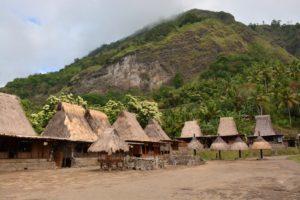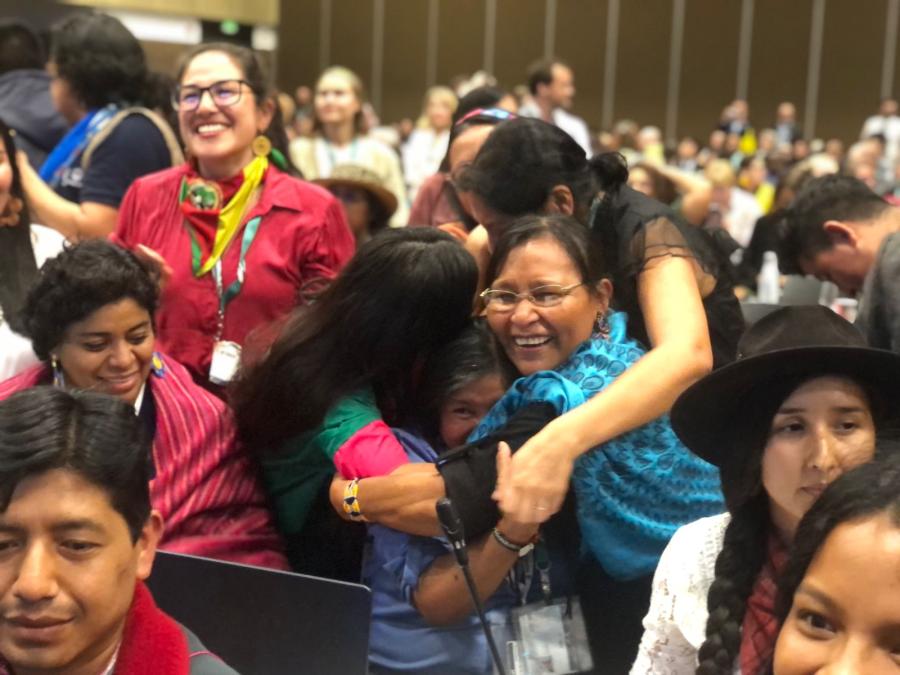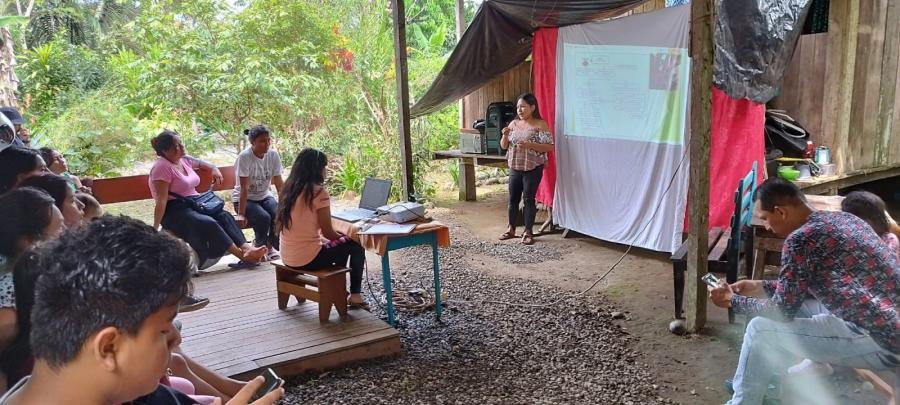
By Patricia Miranda Wattimena
Reposted from World Policy with permission from author.
Over 370 million Indigenous people worldwide, the majority of whom live in Asia, face various forms of suppression and rights violations that can often be directly or indirectly attributed to the legacies of colonialism. In 19th-century Indochina, colonial governments recognized the presence of Indigenous peoples and referenced them in the new European-style legal frameworks, but the terms introduced to describe these groups almost always had negative connotations suggesting that Indigenous societies were savage, uncivilized, primitive, and backward. Sadly, despite Indigenous movements’ decades-long struggles and the adoption of the United Nations Declaration on the Rights of Indigenous Peoples (UNDRIP) in 2007, discriminatory language introduced by colonialists is still commonly used by governments and mainstream societies—and, in some countries, even remains in legal texts.
In the Asian context, this problem is further complicated by the failure of national authorities to introduce (or accept) the term and concept of “Indigenous,” which recognizes the unique positions and distinctive rights of the peoples it describes. Instead, in many countries, the term native, tribal, ethnic minorities among others are still used in many laws, including those regulating lands and resources. This causes confusion and, in most cases, hinders Indigenous peoples from protecting and asserting their rights. In Indonesia, for example, while the government recognizes ethnic minorities and customary law communities, it contends that the concept of Indigenous peoples as is laid out in the UNDRIP does not apply. The government is thus able to circumvent its international obligations regarding Indigenous Peoples, including protections for collective rights, self-determination, and more. The Indigenous Peoples' movement in Indonesia has strongly criticized the state’s position, as have groups in other Asian nations that use similar arguments to evade U.N. human rights standards.
Colonization is not only economic domination by the colonizer; it is also connected to the basic values and systems of the colonized. For instance, before being colonized, many Indigenous groups had maintained their own socio-political and legal systems, governance structures, and social norms for generations. Most of them were destroyed, however, when colonial governments imposed their values and systems on the Indigenous populations.
During colonization, manipulation schemes and strategies were employed by colonizers to remove Indigenous peoples from their land and exploit their natural resources. Millions of Indigenous families were forcibly displaced and deprived of their livelihoods. This massive violation of the collective rights of Indigenous peoples has yet to be rectified, and the legacies of systemic marginalization and discrimination are exacerbated by today’s criminal justice systems. Movements of Indigenous peoples seeking equal access to basic services such as health and education have often been oppressed.
Indigenous leaders and activists have been criminalized, persecuted, and even murdered. Porlajee Rakchongcharoen (also widely known as Billy), a prominent Karen land activist in Thailand, has been missing since 2014, when he was detained by four Kaeng Krachan National Park officials after being accused of illegal possession of a wild bee honeycomb and six bottles of honey. In 2016, Bahtiar bin Sabang, an Indigenous farmer from the Sinjai district in South Sulawesi, Indonesia, was sentenced to one year in prison for allegedly stealing 40 pieces of timber from his own land, which was arbitrarily claimed by the Sinjai government as a state forest area.
Indigenous communities defending their rights and identities—particularly their collective rights to self-determination, territories, and resources—are in most cases labeled as criminals and regarded as threats to national security and sovereignty. Across the world, thousands of human rights defenders, including Indigenous women and youth, have been incarcerated for asserting their rights and standing against the marginalization they face. In April 2017, for example, 14 members of Seko communities in Sulawesi, Indonesia, were detained and more than 400 Seko Indigenous women were beaten, slammed into the ground, and shot with tear gas by police for building tents and barricades to protest a hydroelectric power plant project in their ancestral territory.
Justice will only be realized when the colonial-era legacies of marginalization and discrimination are eliminated and Indigenous Peoples’ rights, particularly their collective rights to lands, territories, and resources, are recognized, respected, and promoted by all parties, from local police officers to the highest levels of government.
-- Patricia Miranda Wattimena is the former advocacy coordinator at Asia Indigenous Peoples Pact in Thailand.



